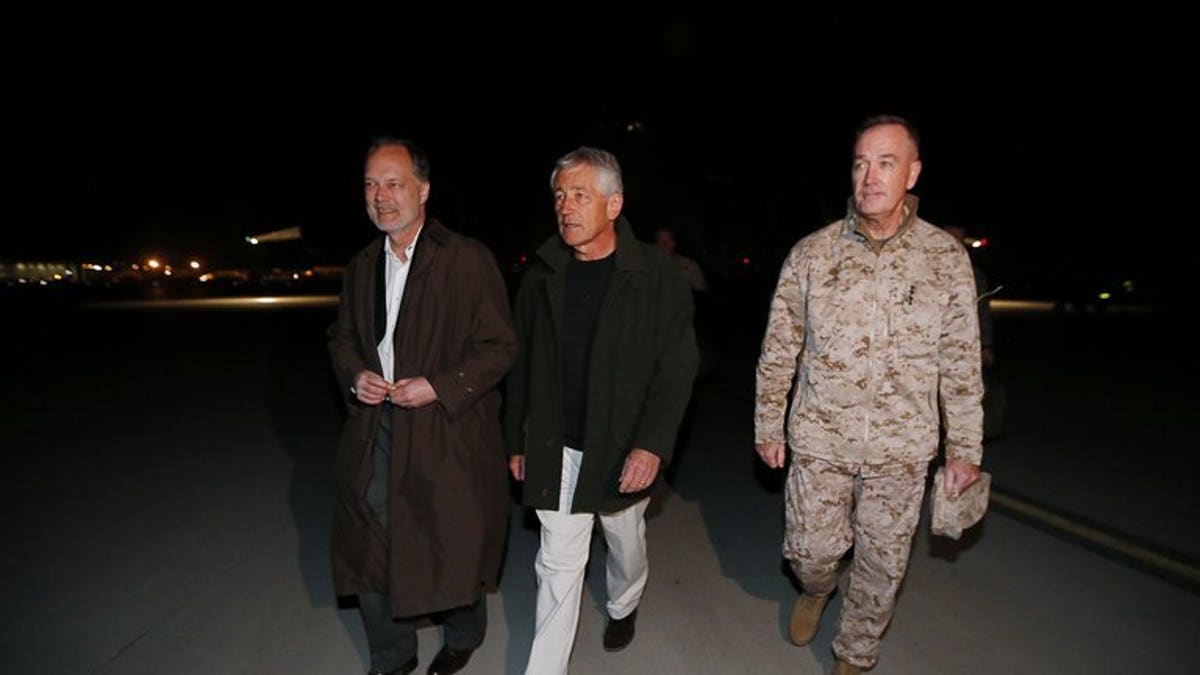
US Secretary of Defense Chuck Hagel (C) walks with US Ambassador to Afghanistan James Cunningham (L) and General Joseph Dunford, Commander of the International Security Force in Kabul, Afghanistan, on March 8, 2013. Cunningham said Tuesday that withdrawing from Afghanistan after 2014 and leaving behind no American troops was not in the interests of either country. (POOL/AFP/File)
KABUL (AFP) – The US ambassador in Kabul said Tuesday that withdrawing from Afghanistan after 2014 and leaving behind no American troops was not in the interests of either country.
"The zero choice would not be a choice that we would want," a statement released by the embassy late Tuesday quoted ambassador James Cunningham as saying during a meeting with a number of Afghan leaders and officials.
The idea of a "zero option" -- of leaving no troops behind -- was mooted earlier this year by US deputy national security advisor Ben Rhodes.
The New York Times reported this month that tense relations with President Hamid Karzai might see Washington quicken its troop withdrawal and possibly remove its entire military presence from the country.
"We don't think it's in the interests of the Afghan people or of the United States," the ambassador was quoted as saying.
On Monday, General Martin Dempsey, chairman of the US joint chiefs of staff, met with Karzai, who stated that he was ready in principle to let American troops stay beyond 2014 as part of a long-term security agreement, which was suspended by the Afghans in June to protest the opening of a Taliban liaison office in Qatar.
"President Karzai said with that hope, Afghans are ready to sign a security pact with the US, on condition that it leads to peace and stability in the country, the strengthening of Afghan forces and a united and sovereign Afghanistan," a palace statement quoted Karzai as saying during the meeting.
Karzai earlier suspended security talks, furious that the Taliban had styled their office in Doha as an embassy for a self-styled government in waiting.
The US relationship with Karzai, while never good and often volatile, deteriorated further over stillborn peace talks with the Taliban in Doha.
Last week Karzai's chief of staff, Karim Khorram, claimed the Taliban office was part of a plot to break up Afghanistan, orchestrated by either Pakistan or the United States.
